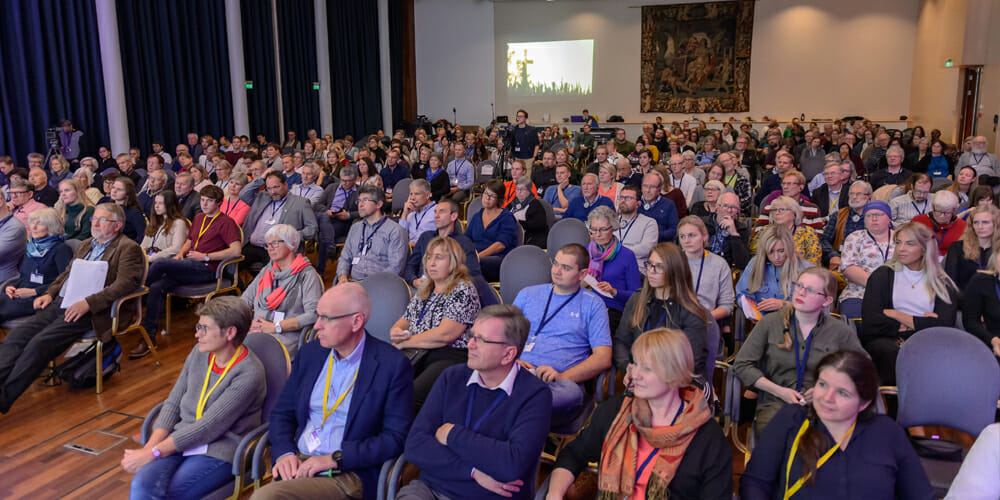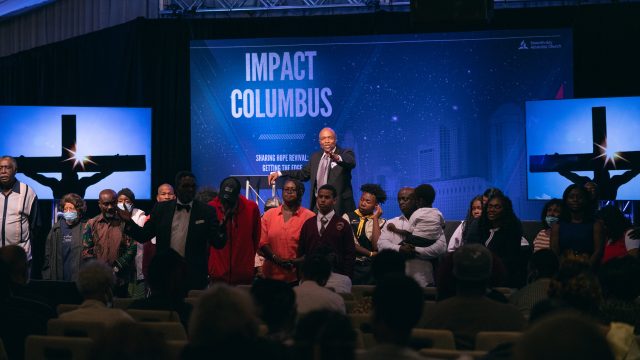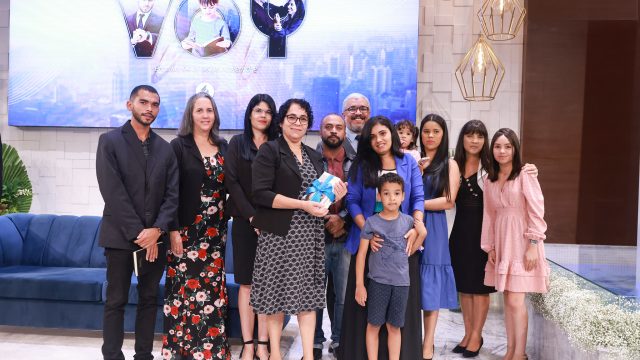In Norway, leadership conference challenges participants to refocus, innovate.

The leadership conference held near the Norwegian Union Conference offices northeast of Oslo in Norway the first week of November 2018 was a first of its kind in the country. It was new in the sense that all local church leaders, from children’s and youth departments to elders, church officers and every pastor, collaborated on plans to empower mission on the ground. It is the place, they said, where the hands and feet of members make a difference on a daily basis.
We would all like to be brought up to do just like Jesus did. The conference was an attempt at instilling some of that practical approach to the Father’s mission. To that end, 350 delegates were able to choose between 31 seminars, as well as attend plenary sessions by Light Bearers ministry co-director Ty Gibson.
Norwegian Union Conference president Victor Marley, who had been pushing the idea of the conference for some time, said he was happy to determine that the conference had invigorated local leadership. Looking beyond the financial issues of such an event, he declared, it had been an investment in the leadership of the church.
“Our message is emphatic about God’s love. As Seventh-day Adventists, we are called to pronounce it everywhere in our day. This conference will assist us to that end,” Marley said.
The Power of Christ
In his keynote address, Gibson emphasized that no superhero had anything on Jesus. The forte of superheroes was to use force and power more cunningly and ruthlessly than the villains they tangled with. “Jesus had a power far greater and incomparably stronger than the might of the mighty,” he said.
Christ’s power was to allow humanity to heap their worst on him without ever becoming sidetracked or troubled by feelings of revenge, Gibson said. Jesus’ love was not romantic or gooey. It was an enduring drive to serve to the utmost until the end under cruel violence, and in so doing revealing his beloved Father to the world as he really is.
“By thus walking among us, he created freedom for those who would give him an ear, to choose him above anyone else because they wanted to,” Gibson said. “No one forced them or threatened them to do so.”
In a completely filled seminar room, Trans-European Division discipleship coach Simon Martin admonished all who want to see church growth to “tear down” their church walls and mingle with people as though we wished them well, to demonstrate what faith looks like. “It was the Savior’s method and must be ours if we would make faith a fathomable option for those who do not know Jesus,” he said.
Messy Church, Norway Style
Two local church leaders from Lillehammer have their own spin on making church accessible. They adapted the concept of “Messy Church” to their context. Messy Church implies doing church for families and individuals who may not find other forms of church appealing and who don’t yet belong to a church. It is typically held once a month and includes hands-on creative experiences, a celebration, and a meal.
Karoline Stølen and Shalini Klausen realized that children and young people growing up in the church are likely to leave unless they find it welcoming and caring. The entire local church is regularly enrolled in making the “mess” happen. However, Stølen emphasizes that it is not just for the sake of doing church differently.
“The hobby activities that we plan and provide are not merely hobby activities. It is evangelism, as everything we do connects directly to the stories of the Bible,” she emphasized.
Leaders believe that in a society where the church, preaching, and Bible teaching are increasingly perceived by some as ridiculous, we have two options. “We can continue doing business as usual or demonstrate the power of Jesus and the compassion of the Father in a language that speaks to modern people,” they said.
The original version of this commentary was posted on the Trans-European Division news page.








